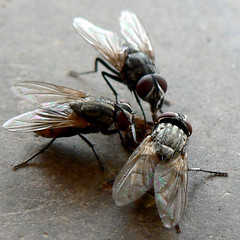The reason why dogma can’t be deemed as belief is because belief is structureless. Belief isn’t dependant upon a system. In fact belief is the direct betrayal of fidelity. Sometimes the system is what some refer to as ‘faithfulness’. If we remain true to a system of belief than we are participating in faith, but once we deem the structure fallible than we are deemed as outsiders. This structured belief doesn’t just lie within the construct of religion, but in any topic. We all believe in things. And to each person, each thing they believe in is precious, as it should be. But if we sacrifice our belief to systematic altars than what we end up with is a system and not a belief. We end up with the illusion of belief.
A great example of this is seen in Tim Burton’s cinematic rendering of Carroll’s Alice in Wonderland. Alice enters into Wonderland and can’t remember ever being there.
Her disbelief causes others to disbelieve. She begans dismantling the systems that others have expected of her. Once she fails everyone including herself, she then is reminded of who she once was. She rekindles her ‘muchness’. It is the darkest moment of her disbelief that she comes to see the truth. Truth is discovered not when we have the lights on,
but is found when all the light switches fail us.
Dogma imprisons us within freedom. It gives us the caged experience of liberty. It drives us to think when we are bound we are free. The illusions that dogma perpetuate empowers us with the sense of being in control of our own destiny, as if we have a choice to follow the Creator. But the fatal flaw of dogma is that the illusions aren’t real. They lie to us. They betray us by being faithful to themselves.
Part of this fatal flaw also exists in the fact that the structure(s) guide us and not the Being outside of us.
Dogma is much like the pet who gives us a sense of belonging, a sense of egotistic guidance that follows after us wherever we go. The danger that we can’t see is the day when the family pet becomes like the rabid dog in the 80’s family drama Old Yeller.
The family pet who eventually falls prey to a parasitic disease that essentially perverts a young boys innocence from child to man by demonstrating the pain of loss early on in his development. In this perspective, dogma than becomes the very enemy to our development, it essentially takes a 180 from what we have been taught to think about it and informs us much earlier of its own demise.
The other reality within this story is that the death was inevitable. The death of family pet was going to happen. The child in the narrative wasn’t aware of it until it happened, but it did eventually come. The death of dogma isn’t inevitable, only because it has already happened. The death of dogma has occurred once it began, because belief by its very nature is the parasitic element that eats away at its structure and denies it life. Dogma now only exists as an illusion in our minds. As a spectre that haunts us in our waking nightmares.
When we accept illusions we then perversely deny reality as a possibility. We deny our own development. We deny a better way.













